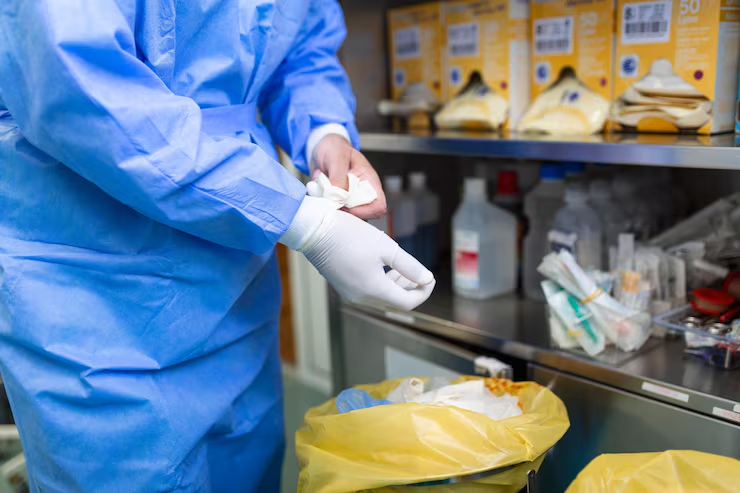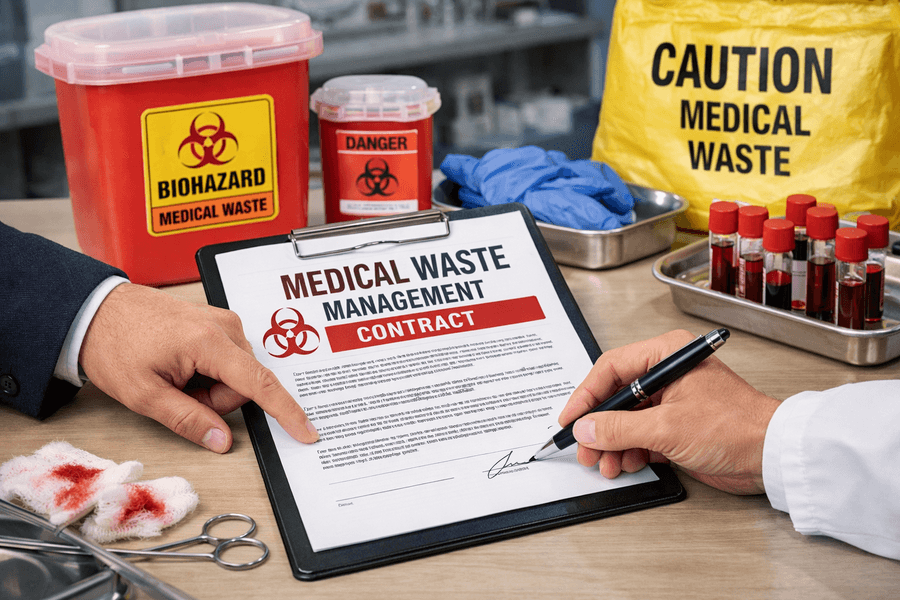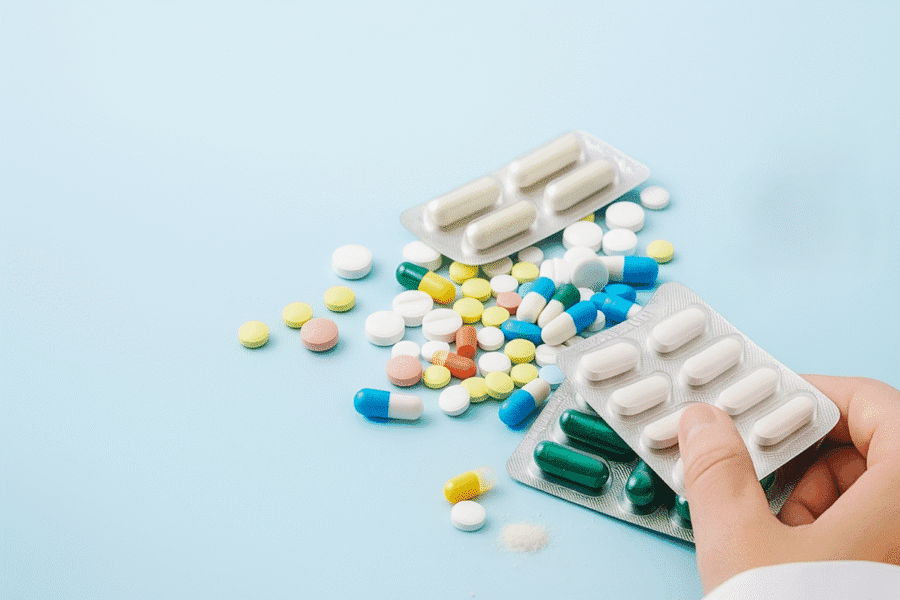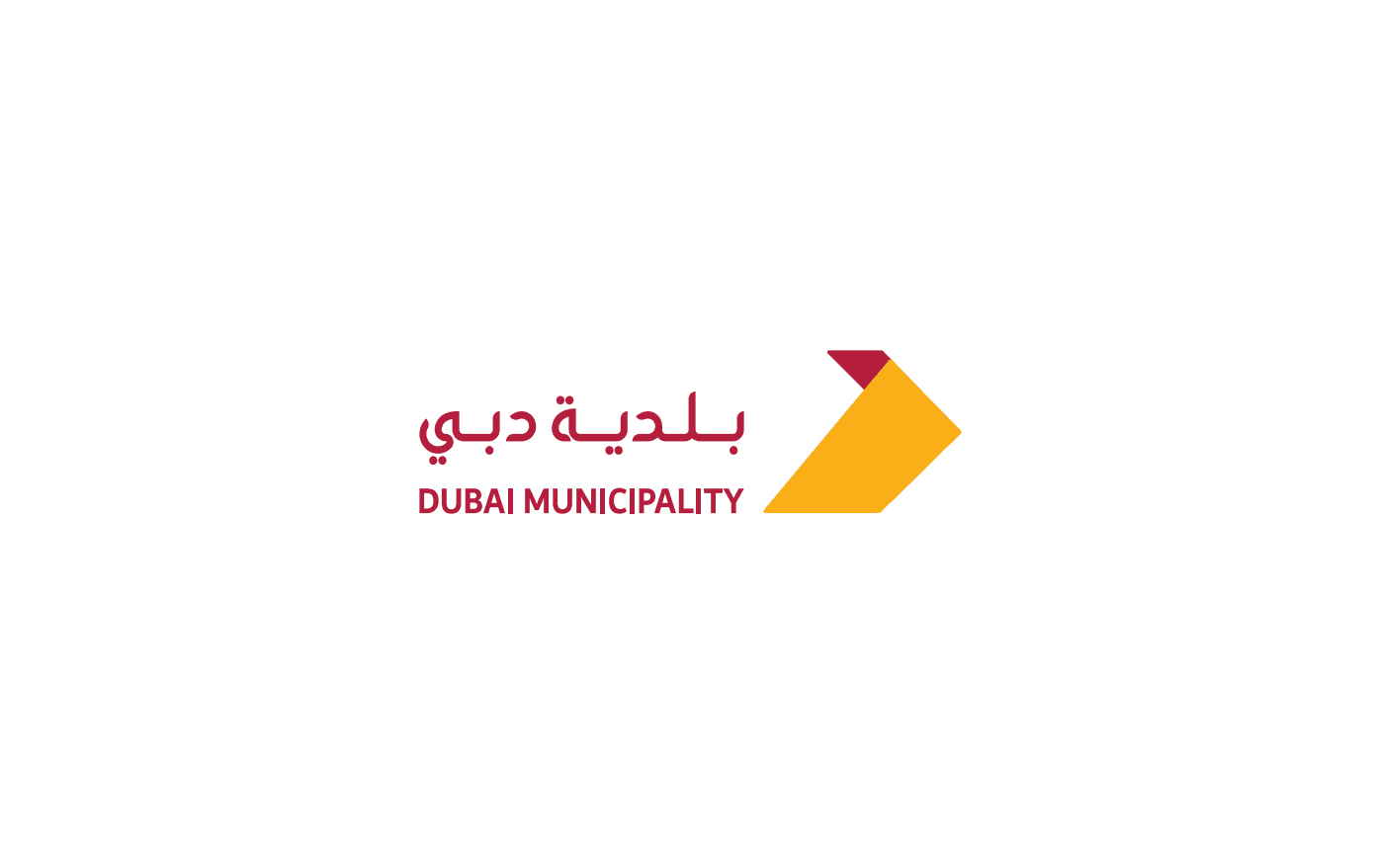Rich Text Content
Dubai stands at the forefront of sustainable development, with strict regulatory frameworks designed to protect public health and the environment. One critical area of focus is the collection and disposal of laboratory waste and medical waste. Whether it’s a research facility, hospital, clinic, or pharmacy, the handling of hazardous and non-hazardous medical waste must meet the highest standards — specifically those set by Dubai Municipality approved guidelines.
In this blog, we explore how laboratory waste, medical waste, expired medicines, and general medicines are collected, managed, and safely disposed of in Dubai.
What is Laboratory Waste?
Laboratory waste refers to the waste materials generated from scientific, clinical, and research laboratories. These materials can be biological, chemical, or radioactive in nature and may pose serious risks if not handled properly. Types of laboratory waste include:
- Used pipettes, test tubes, and sample containers
- Biological samples such as cultures, tissues, and blood
- Chemical reagents and solvents
- Contaminated sharps (needles, scalpels, slides)
- Discarded personal protective equipment (PPE)
Due to its potentially hazardous nature, this type of waste must be collected and processed only by Dubai Municipality approved waste management companies. These companies follow strict protocols for packaging, labeling, transport, and final disposal, ensuring full compliance with local environmental regulations.
Understanding Medical Waste: A Broader Category
Medical waste includes all waste materials produced by healthcare facilities such as hospitals, clinics, dental offices, and pharmacies. It overlaps with laboratory waste but also includes items used during patient care. Examples of medical waste include:
- Used gloves, syringes, and IV tubing
- Blood-soaked materials and swabs
- Discarded vaccines and pharmaceutical products
- Pathological waste (body parts, tissues)
- Sharps and other instruments
If improperly disposed of, medical waste can spread infectious diseases, harm wildlife, and contaminate groundwater. In Dubai, the Dubai Municipality mandates that medical waste be separated at the source and stored in color-coded containers to prevent cross-contamination.
What About Expired and General Medicines?
Households and healthcare facilities alike often face challenges when disposing of general medicines and expired medicines. Flushing them down the toilet or tossing them in regular trash can lead to serious environmental consequences and public health risks.
Dubai has established procedures for the safe disposal of unused, damaged, or expired medications. Pharmacies and clinics are often equipped with Dubai Municipality approved disposal units or offer return programs where expired drugs can be collected for incineration.
Types of medicines requiring safe disposal include:
- Over-the-counter painkillers and antibiotics
- Prescription medications
- Vitamins and supplements
- Expired insulin, inhalers, or liquid medications
Role of Dubai Municipality in Waste Management
The Dubai Municipality plays a key role in regulating, inspecting, and licensing companies that handle hazardous waste. A waste collection company must be Dubai Municipality approved to legally collect and process medical and laboratory waste. This ensures:
- Compliance with UAE’s environmental health and safety regulations
- Safe transport and storage of hazardous materials
- Secure treatment methods such as autoclaving, incineration, or chemical neutralization
- Documentation and tracking for full transparency
Only certified companies are allowed to handle sensitive waste streams, and regular audits are conducted to maintain quality and safety standards.
Steps for Safe Waste Disposal in Laboratories & Healthcare Facilities
If you manage a healthcare or research facility in Dubai, here’s how you can ensure compliant waste disposal:
- Segregate waste at the source: Use color-coded bins for sharps, biological, chemical, and general waste.
- Label everything: All containers must be clearly labeled with hazard symbols and waste type.
- Use Dubai Municipality approved providers: Partner with licensed waste management companies.
- Maintain records: Keep documentation of collection schedules, weight, and type of waste disposed of.
- Train your staff: Regular training on waste segregation, handling, and emergency response is essential.
Conclusion
tFrom laboratory waste to expired medicines, Dubai has a well-regulated system in place to ensure that all types of medical waste are managed safely and responsibly. Whether you’re running a diagnostic lab, hospital, or pharmacy — or even managing medications at home — it’s essential to work with Dubai Municipality approved waste collection services.
These efforts not only protect public health but also help preserve the environment for future generations.
Need a Dubai Municipality Approved Waste Collection Partner?
Make sure your facility complies with all local regulations. Contact certified waste management services in Dubai for reliable pickup, disposal, and documentation support.



